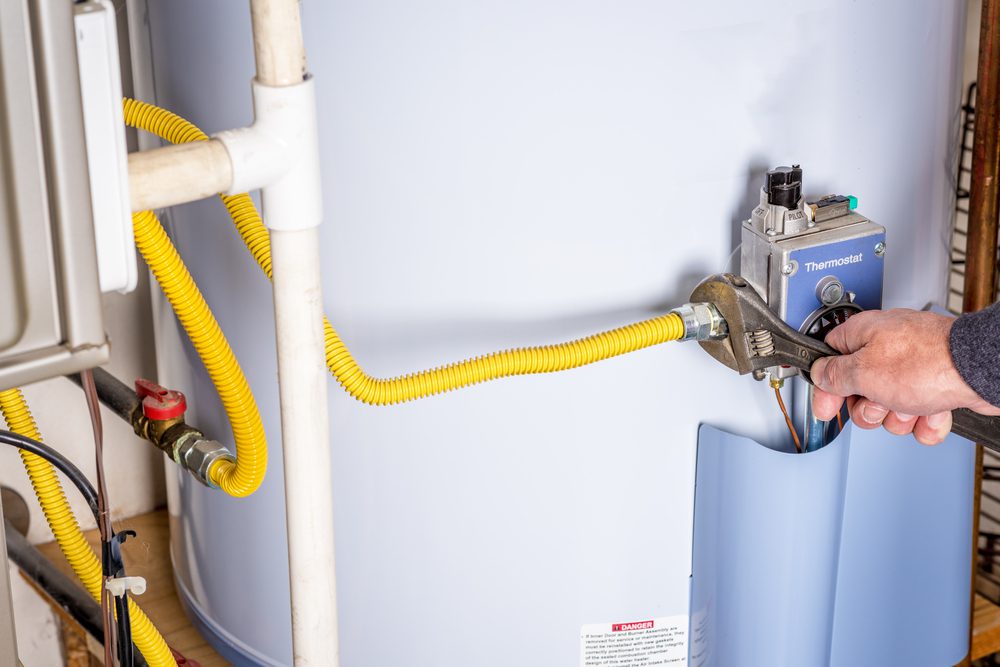Mastering The Identification Of Everyday Heater Issues
Mastering The Identification Of Everyday Heater Issues
Blog Article
Right here in the next paragraph you can locate a bunch of professional news relating to Common Problems with Tank Water Heaters.

Envision starting your day without your regular hot shower. That already establishes a bad tone for the rest of your day.
Every residence needs a reliable water heater, yet only a few understand exactly how to manage one. One easy way to keep your water heater in top shape is to look for faults regularly and also repair them as quickly as they show up.
Remember to switch off your water heater before smelling around for faults. These are the hot water heater faults you are probably to experience.
Water too hot or too cold
Every water heater has a thermostat that determines how hot the water gets. If the water entering into your house is also hot regardless of establishing a practical maximum temperature level, your thermostat might be damaged.
On the other hand, too cold water might be due to a fallen short thermostat, a busted circuit, or improper gas flow. For instance, if you utilize a gas water heater with a busted pilot burner, you would obtain cold water, even if the thermostat is in excellent condition. For electrical heating units, a blown fuse might be the perpetrator.
Insufficient warm water
Hot water heater can be found in many dimensions, depending on your warm water needs. If you lack warm water prior to everyone has had a bath, your water heater is too small for your family size. You must think about installing a bigger hot water heater storage tank or going with a tankless hot water heater, which uses up less area as well as is extra sturdy.
Weird sounds
There are at least five kinds of sounds you can learn through a water heater, but one of the most usual interpretation is that it's time for the water heater to retire.
First of all, you should be familiar with the normal sounds a water heater makes. An electrical heating system might appear different from a gas-powered one.
Standing out or banging sounds normally indicate there is a piece of debris in your containers, as well as it's time to cleanse it out. On the other hand, whistling or hissing audios may just be your valves letting some pressure off.
Water leaks
Leaks could come from pipelines, water connections, valves, or in the worst-case scenario, the tank itself. Over time, water will rust the tank, and also find its escape. If this occurs, you require to replace your water heater as soon as possible.
However, prior to your adjustment your entire tank, make certain that all pipelines remain in area which each shutoff functions perfectly. If you still require assistance recognizing a leak, call your plumber.
Rust-colored water
Rust-colored water means one of your hot water heater parts is rusted. Maybe the anode pole, or the container itself. Your plumber will be able to identify which it is.
Lukewarm water
Despite exactly how high you set the thermostat, you won't get any type of hot water out of a heating unit well past its prime. A hot water heater's performance may lower with time.
You will certainly likewise get lukewarm water if your pipes have a cross connection. This indicates that when you switch on a faucet, hot water from the heater streams in along with regular, cold water. A cross link is very easy to place. If your warm water taps still pursue closing the hot water heater shutoffs, you have a cross link.
Discoloured Water
Corrosion is a major cause of filthy or discoloured water. Deterioration within the water container or a falling short anode pole might create this discolouration. The anode rod safeguards the storage tank from rusting on the within and also should be examined yearly. Without a rod or an effectively functioning anode rod, the hot water rapidly wears away inside the storage tank. Call an expert water heater specialist to determine if replacing the anode pole will certainly deal with the problem; if not, change your hot water heater.
Conclusion
Ideally, your hot water heater can last one decade prior to you require an adjustment. Nevertheless, after the 10-year mark, you might experience any one of these faults a lot more frequently. At this point, you need to include a brand-new water heater to your budget plan.
How To Troubleshoot 3 Common Water Heater Problems in Twin Cities
The Water Heater Is Leaking
A leaky cold water inlet valve A loose pipe fitting A leaky temperature and pressure relief valve A corroded anode rod A cracked tank Turn Off Your Water Heater:
Shut off your gas water heater by turning the gas valve on the unit to the “OFF” position. Shut off your electric water by switching its power off at your electrical panel. Look for a two-pole breaker labeled “water heater” and turn it to the “OFF” position. Move the ball valve connected to the water heater to be perpendicular to the piping at a 90° angle. Look for the Leak:
Depending on whether the water is coming from the tank's top or bottom, you’ll want to look for the leak in different locations.
If the leak comes from the top of the tank, carefully look for water escaping from the cold water inlet valve or loose pipe fittings. Rusted hot and cold water valves can have loose connections with the tank, with water leaking out of them.
https://mspplumbingheatingair.com/blog/how-to-troubleshoot-3-common-water-heater-problems
Do you really like reading up on Common Problems with Your Home Water Heater? Place a remark below. We will be interested to see your responses about this content. We are looking forward that you visit us again later on. Sharing is caring. Who knows, you might be helping someone out. We cherish reading our article about Water Heater Repair and Troubleshooting.
Plumbing crisis? Reach out! Report this page